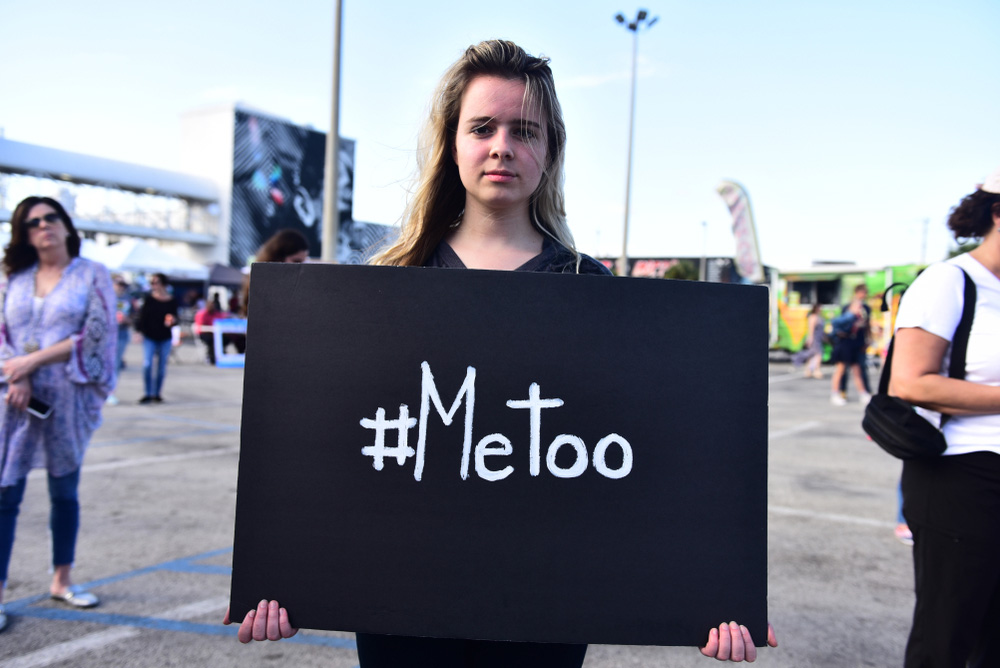In the #MeToo era, survivors of sexual assault and harassment are naming names.
But as the hashtag has become a global phenomenon, more and more of those names are retaliating by suing their accusers for defamation.
Dalya Israel, executive director of the WAVAW Rape Crisis Centre in Vancouver said that survivors are taking note of legal actions launched against them.
“We in one breath are incredibly motivated and excited about the cultural tipping point that we’re in, where we’re able to actually talk about the reality of sexual assault, and talk about believing survivors, and knowing that nobody can do anything to deserve sexual violence,” she said. “At the same time, the fear of backlash is real.”
Enter B.C.’s new Protection of Public Participation Act, which received royal assent on March 25. The provincial legislation allows people being sued to ask the courts to dismiss the lawsuit if it’s intended to silence them or stamp out debate on a matter of public interest.
Legal experts say it remains to be seen if the act will benefit survivors in B.C. It hasn’t been tried. And in provinces where anti-SLAPP laws exist in Canada, they haven’t been invoked where sexual assault allegations are concerned.
But similar legislation is having an effect south of the border.
In the U.S., “anti-SLAPP legislation is definitely a tool that survivors of sexual assault and domestic violence can use to combat frivolous litigation,” said Evan Mascagni, policy director at the Public Participation Project, an organization seeking to expand American anti-SLAPP protections.
SLAPP suits — strategic lawsuits against public participation — are what B.C.’s new legislation is aimed at preventing. Often, they’re filed by large corporations with a wealth of legal and financial resources, against activists or journalists who lack both.
“SLAPP filers don’t go to court to seek justice,” Mascagni said. “They just want to intimidate and harass.”
The success of a SLAPP suit doesn’t depend on winning at trial — it comes from dragging an opponent through a costly, time-consuming legal battle and, said Mascagni, making their “life a living hell.”
Anti-SLAPP legislation currently exists in 28 states. Some sexual assault survivors have benefited from the legislation where it exists and are advocating for it where it doesn’t.
In 2004, a California case became one of the first to bring attention to how survivors can be targeted by litigation, said Mascagni. Using the anti-SLAPP provisions of the California Code of Civil Procedure, the Survivors Network of those Abused by Priests was successful in having a defamation suit against them, brought by a priest, dismissed.
In Texas in 2016, a congressional candidate sued a woman who accused him of sexual harassment for defamation. The woman was able to get the lawsuit dismissed, and her costs covered, under the Texas Citizens Participation Act, the state’s anti-SLAPP legislation.
B.C. is Canada’s third province to adopt anti-SLAPP legislation, along with Ontario and Quebec. Similar legislation existed here under the NDP in 2001, but the BC Liberals repealed it months later.
Under the new act, a person being sued for defamation is able to apply for a dismissal of the suit, if their comments were related to a matter of public interest. The person suing then has to demonstrate to the court that their lawsuit has substantial merit and that the person who made the comments has no defence.
They also have to establish that the harm to their reputation is serious enough that it outweighs the public interest in protecting freedom of expression. Otherwise, the lawsuit can’t go ahead.
Though journalists and activists often come up in SLAPP discussions, Attorney General David Eby, who introduced the act in the legislature, said it isn’t aimed at any specific group. What’s key, he said, is the value of the public discourse raised. The balancing test between the two public interests — reputation and expression — will work on a case-by-case basis.
Leo McGrady, a lawyer at Koskie Glavin Gordon who’s practiced defamation law for 50 years (and works as counsel for The Tyee), believes the act has the potential to apply to abuse survivors.
He called it a “powerhouse piece of legislation” and the “best in the country.” When applying the balancing test to allegations of sexual assault, he said that “certainly sexual assault is much more important than a person’s reputation. But the next question is, what’s the value in it being publicized?”
Sexual assault allegations are inherently harmful to the accused’s reputation and must be proven true to avoid a defamation judgment against the accuser, he said.
“One of the most serious form of libel is accusing someone of a criminal offence,” said McGrady. “That’s compounded here by the fact that many of the allegations of sexual assault occur in the employment context. That’s the second most serious kind of libel, when you libel someone in their profession or occupation. Those accusations hit both.”
Megan Ellis is a lawyer who’s represented survivors of sexual assault and abuse for 30 years. She said the question about whether publicizing allegations is in the public interest is crucial, and the answer is unclear.
“You and I might think that there are many circumstances where exposure of people as sexual abusers is in the public interest, or that the general discourse is in the public interest, and I think that’s certainly true,” Ellis said. “But to shut the door on people defending themselves against false allegations on the basis that all or most sexual assault allegations are a matter of public interest, I see as something the court is unlikely to do.”
Overall, defamation suits in cases involving sexual assault or harassment don’t just affect the individual, said Israel of the WAVAW Rape Crisis Centre group.
The fear of getting sued can silence others, an effect known as “libel chill" that the new legislation hopes to combat. In terms of speaking out about sexual assault, it’s just one barrier among many — such as victim blaming, losing their job and not being believed.
Israel said the #MeToo moment has helped move the conversation around sexual violence away from shame and stigma, aiding survivors who speak out.
But, she added, headline-making legal retaliation can take over the dominant silencing role that shame and stigma formerly played. “We end up being in a very similar place, where the fear then begins to mount again about whether you can actually speak your truth, and whether people will believe you.”
In addition to silencing, defamation suits drain bank accounts. A defamation trial generally takes three or four days, said McGrady, and it can take up to two years to get a trial date. Referencing a recent case handled by another lawyer, McGrady said the three-day trial came with an $110,000 legal bill.
Under the new legislation, a person who is successful in getting a defamation suit dismissed is entitled to have their costs covered and may be entitled to damages if the court finds that the lawsuit was in bad faith.
Despite the risks of speaking out, survivors continue to name names. “There is a deep desire by many survivors to warn other people about the harms that have been caused to them,” Israel said.
Naming names, she said, allows “people to actually be able to gather together who have been harmed by the same person, or the same people, or the same community, in order to make sense of the fact that it wasn’t their fault.” ![]()
Read more: Rights + Justice, Politics, Gender + Sexuality

















Tyee Commenting Guidelines
Comments that violate guidelines risk being deleted, and violations may result in a temporary or permanent user ban. Maintain the spirit of good conversation to stay in the discussion.
*Please note The Tyee is not a forum for spreading misinformation about COVID-19, denying its existence or minimizing its risk to public health.
Do:
Do not: